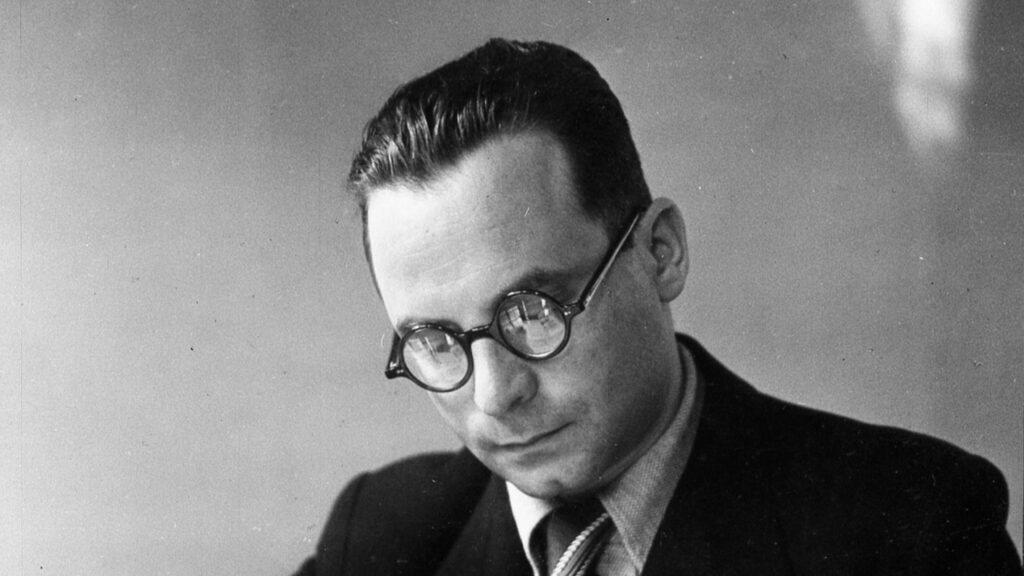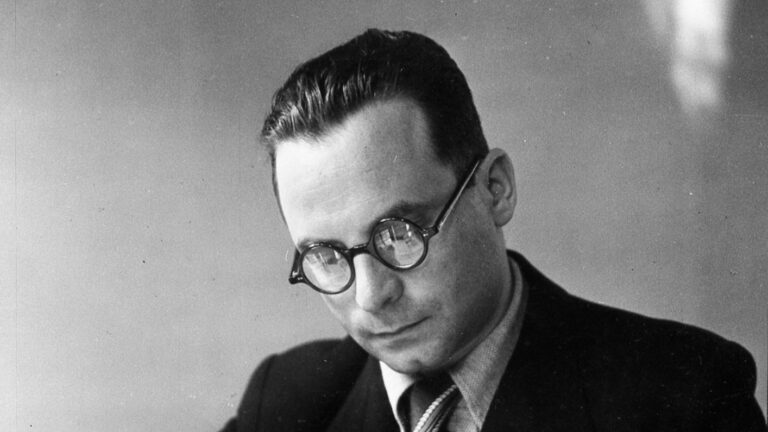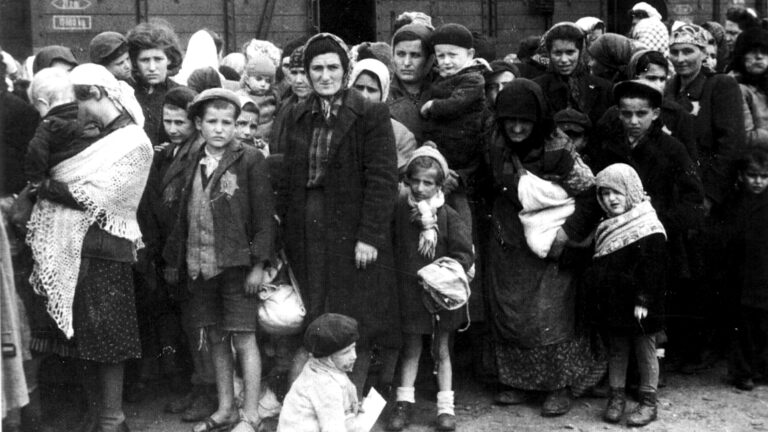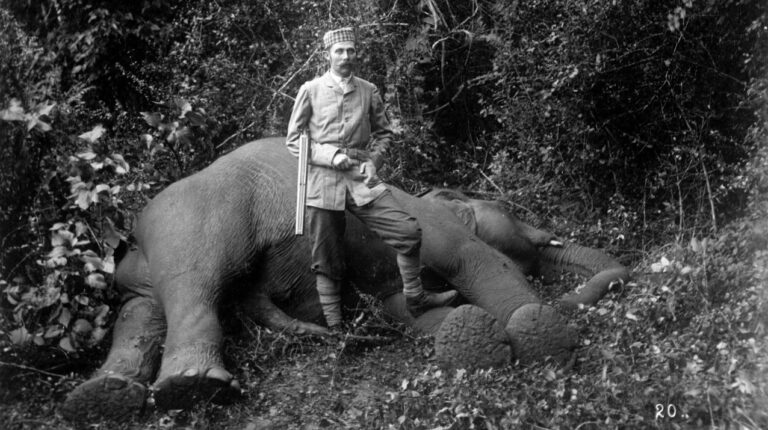The following is an adapted version of an article written by Lázár Pap, originally published in Hungarian in Magyar Krónika.
America—the new world, the land of opportunity, the land of the free. In the 19th and 20th centuries, hundreds of thousands of Hungarians left their former lives behind to cross the Atlantic and try their luck Far Far Away, that is, ‘Beyond the Óperencia’, as Hungarian fairy tales go. In its series, Magyar Krónika looks at the meeting points of America and Hungary through the Hungarian diaspora living in the US. In this section, let us introduce a mysterious woman who spent perhaps the most beautiful period of her overall tragic life overseas, where Hungarian emigrants had created their own little Hungary.
The series began with a life story recorded by historian Julianna Puskás. In it, a Hungarian who had travelled to America told the researcher about his experiences overseas and his fate after returning home. Now that we have reached the 20th part of the series, we would like to present another similar story, also from Julianna Puskás’s repertoire.
The case of the anonymized J M née E B is also interesting because she crossed the Atlantic Ocean as a woman, and she was not driven by hopelessness or a thirst for adventure. She claimed that she was born in 1897, and her parents owned 24 acres of land, perhaps even more. The members of the large family all worked on the estate, while she helped around the house. The family, who lived in the small village of Nyíri in Szabolcs County, had eight children, five girls and three boys, and they wanted for nothing—at least that is how the narrator remembered.
So, what made her leave home? Her father’s sister, her aunt, and her husband were already living in the United States and wrote to them regularly. As a little girl, she heard stories that everyone who worked was respected there, and that if you were thrifty, you could quickly save up a little money. Her aunt visited them in Nyíri, three years after her father’s death, and began to persuade the family to let the girl go with her to America to be their ‘eternal daughter’, since they had no children of their own.
In the end, she agreed to go—her aunt took care of the official paperwork, and her mother paid for the ticket from their savings in the bank (which also shows that they were a wealthy family). The report also reveals that her brothers were worried that the 200 forints withdrawn from the bank would not be recouped, but E B pointed out that she still had 50 forints left and paid off the costs within two years.
‘Her aunt’s husband was already waiting for them in America, and she lived with them until she got married’
She clearly remembered the stops in Naples and Gibraltar made by the cargo ship departing from Fiume. Her aunt’s husband was already waiting for them in America, and she lived with them until she got married—but let’s not get ahead of ourselves…
Our heroine found a job at a cigar factory in Perth Amboy through acquaintances, where she was paid based on performance. It took her a few months to learn how to roll cigars well enough to earn a decent living.
At first, she received 50 cents for a hundred cigars; later, 70. When she was finally outstandingly good at her job, she could make up to 800 a day; her record was 950, she boasted to the historian.
Work began at seven in the morning and lasted until six in the evening with an hour’s lunch break. The vast majority of the workers were Hungarian, and the overseers were Hungarian Jews. According to her recollections, they did not really come into contact with people of other nationalities, and thus she did not learn the language. Her aunt’s husband spoke excellent English, as did her later husband.
During her stay abroad, she distributed Hungarian newspapers, including Népszava and Szabadság, and joined Hungarian associations, such as the Bocskai Association and the Negyvennyolcas Association. They shopped at Hungarian grocers, bakers, and butchers. On Sundays, they attended the congregation of the Hungarian Reformed Church in Perth Amboy, where her aunt’s husband was a presbyter. During this time, between 1912 and 1922, the congregation also built a school, and this community provided the social network, too. A family paid six, single people paid three dollars in church taxes—but according to E B, they did not mind this at all, as they knew that if there was a problem, they would get help from here.
As a girl, our heroine had a lot of fun, went to the cinema and the circus, participated in the associations’ entertainment, and performed at festive celebrations. They did not let Hungarian customs be forgotten either. ‘We even held a harvest ball for those who came from the vineyard regions,’ she recalled.
‘They did not let Hungarian customs be forgotten’
At first, she missed her family very much, and they only dared to give her letters from home after dinner, because they would make her cry so much that she couldn’t even eat. However, after she got used to the situation, she started to feel good. She also loved her job; she felt free. Regarding her decision to become a house servant, she explained: ‘I didn’t even try to serve, because the servants were slaves—and I loved the free life.’
She also found a husband, and the pastor of the aforementioned Reformed community swore an oath to them. Her aunt and her husband would have continued to provide them with housing, but E B’s husband wanted a home of his own. They managed to save enough money to rent a house. They had two children, a son and a daughter, who were taken care of by her aunt after she went back to work. However, their son fell ill, was hospitalized, but could not be cured and died soon after.
In 1922 they returned to Hungary to her husband’s home village. Her father-in-law invited them home, and her husband was happy to go, although he later regretted it, as E B noted. After their return home, they bought five acres of land, agricultural equipment, and a house. They started farming, but ‘in those years our work didn’t yield much,’ she recalled.
What’s more, the relationship between her husband and his father deteriorated so much that the man decided to return to America. However, to do so, they had to sell the land, which they did, so the woman stayed home with the two children, because they had another little son born back home. The husband got a job in a block factory in Chicago, which meant very hard physical work, but at least it paid well. However, by the time he had saved enough money for the family to follow, he died tragically suddenly in 1929. The Hungarian association paid a thousand dollars to the family that stayed home, of which a hundred were deducted for funeral expenses. The money arrived five or six years later, and the woman had a nice house built with it. She said that the experiences she had abroad made her somewhat more demanding in the conditions in Hungary than those who had always lived here, especially when it came to housing.
At the end of the interview, it is revealed that her daughter died when she was nine, and her son, who was born in Hungary, died at the age of 24, leaving her alone. Several of her relatives had moved to America, and the children of one of her aunts and a brother and his descendants also remained overseas.
This article is based on Julianna Puskás’s book Hungarian Emigrants in the United States of America, 1880–1940.
Read the previous parts of the series below:
Click here to read the original article.







